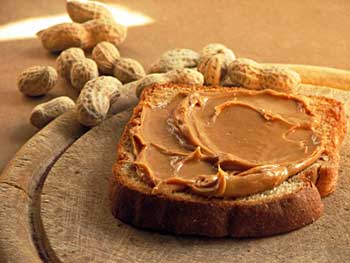More Health and Nutrition Bites
Related
Are saturated fats bad for you?
So we know now that saturated fat is one of the culprits increasing the risk of not just heart disease and stroke but also some cancers. Unfortunately, people have gotten the idea that all fat is evil.
Mediterranean Diet Helps Prevent Central Fat Distribution
In last week's Dr. Tim Says.... column I wrote about the effects of a Mediterranean-style diet on central adiposity - otherwise known as "belly fat." I recently ran across a study conducted in Spain that compares three different diets head-to-head on their effects on the distribution of belly fat, so I thought I'd share it with you.
Butter vs. Margarine
I've been involved in writing about nutrition now for over two decades, and I have seen a lot of changes. I will see more in the next 20 years to be sure. The one area, however, where I do believe that we have a good understanding about what works and what doesn't is fats.
Health & Nutrition Bites
Get the latest health and diet news - along with what you can do about it - sent to your Inbox once a week. Get Dr. Gourmet's Health and Nutrition Bites sent to you via email. Sign up now!
Not all fats....

When it comes to diet and nutrition, I can understand why people look for simple answers. It's much easier to say "avoid carbohydrates," or "don't eat wheat products," or "all fat is bad" or even "all oils are bad" than to remember to eat fish several times a week, remember which are the best fish, and also keep in mind how much fish is the right amount.
Fats are a good example of this, as well. For years, all fat was bad. "Low-fat" and "fat-free" where the magic words in food, and so avoiding fat meant you could feel confident that you were making good food choices. Then we found out that it's really trans-fats that should be avoided as much as possible, while certain types of fats, particularly monounsaturated and polyunsaturated fats, such as omega-3 fatty acids, were good for you. Saturated fats, therefore, were bad.
I have some bad news for you: not all saturated fats are bad.
All fatty acid molecules are made up of chains of carbon atoms. Each carbon atom in the chain has either 1 or 2 hydrogen atoms attached to it. When there are two hydrogen atoms attached to every carbon atom in the string, the fat is referred to as "saturated." Despite the way people talk about saturated fat, there are actually several types: among these, palmitic acid and stearic acid have been associated with insulin resistance and an increased risk of diabetes. On the other hand, types of extremely-saturated fatty acids called "very-long-chain saturated fatty acids" (VLCSFA) have 20 or more carbon atoms in its chain, and they are believed to help counteract the activity of fats like palmitic acid. (Please note that the name "palmitic" has nothing to do with the plant known as a palm.)
A multi-university team of researchers in the United States wondered if circulating levels of VLCSFAs in the bloodstream might predict one's risk of diabetes (Am J Clin Nutr 2015;101:1047-54). To find out, they were able to access the data collected through the Cardiovascular Health Study, a large-scale, long-term study of heart disease in older adults.
After excluding those participants who had diagnosed diabetes, there were nearly 3,200 people whose bloodwork at the start of the study included analysis of the right types of fatty acids. The fatty acid levels of who developed diabetes thereafter were then compared wtih those who did not.
After taking into account factors that included race, smoking and alcohol use, medications, heart disease or high blood pressure, Body Mass Index, and waist circumference, the researchers noted that those whose blood levels of VLCSFAs were in the top 25% were 47% less likely to develop diabetes than those whose blood levels were in the bottom 25%.
What this means for you
This is another study that looks at a snapshot in time, so it can't be said to prove that very-long-chain saturated fatty acids (found in such items as peanuts, macadamia nuts, and canola oil) prevent diabetes. What it does show is that we can't demonize all saturated fats anymore. Sorry, folks: a healthy diet does not necessarily exclude any one macronutrient or even ingredient. Moderation is key.
First posted: May 6, 2015
